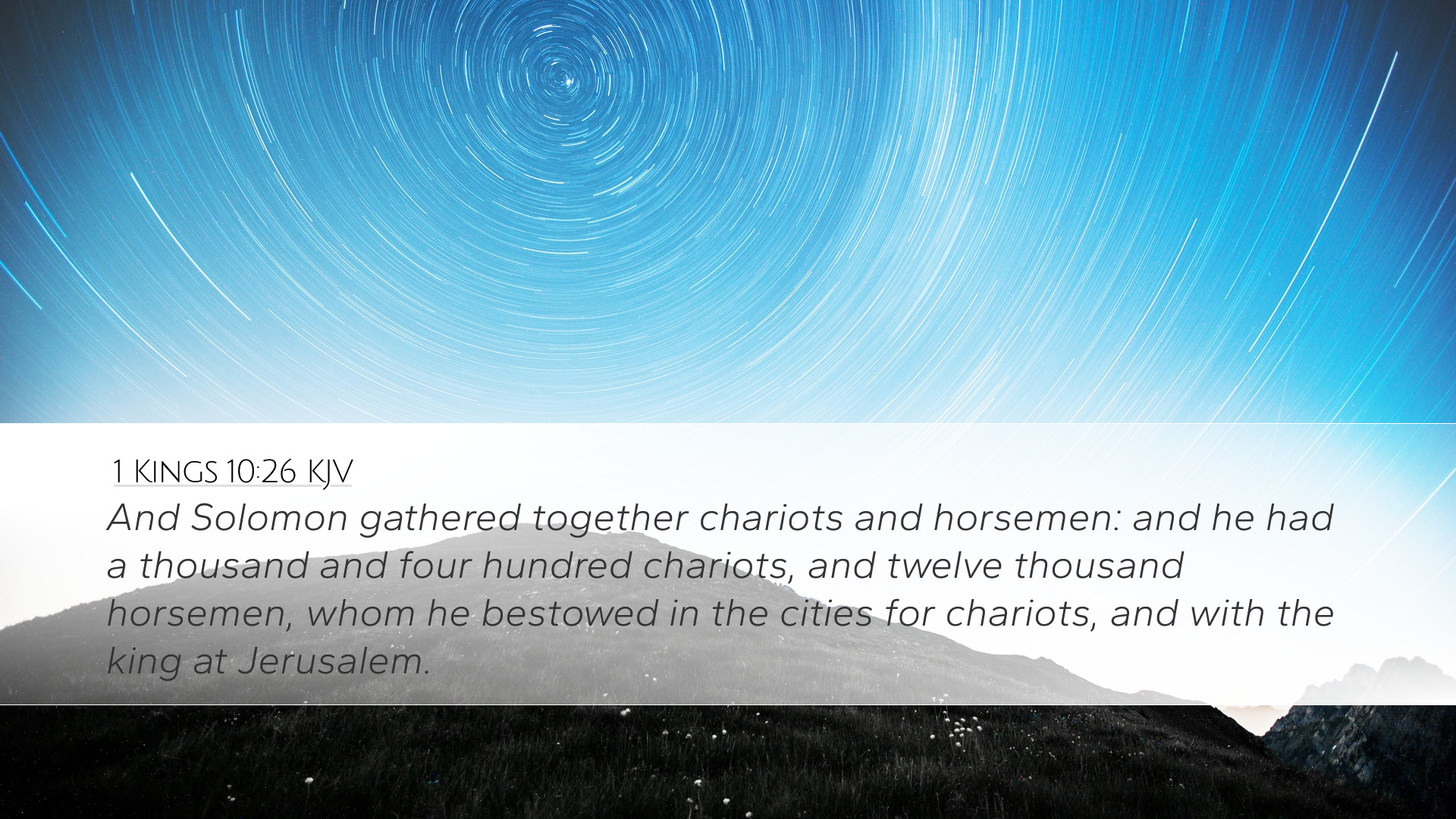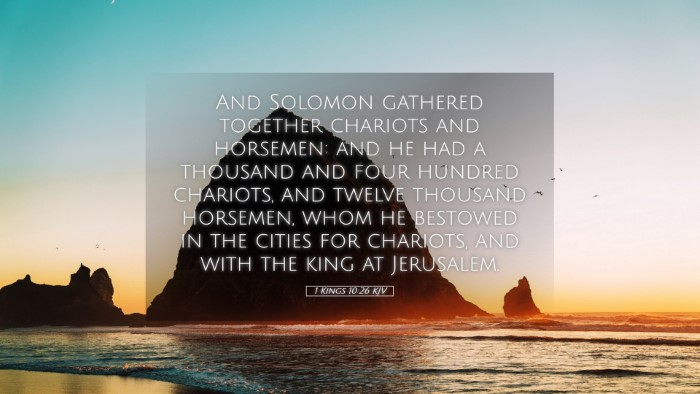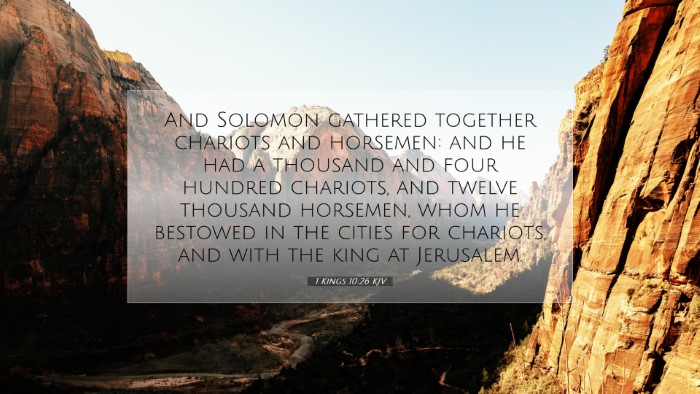Commentary on 1 Kings 10:26
Verse: "And Solomon gathered together chariots and horsemen: and he had a thousand and four hundred chariots, and twelve thousand horsemen, whom he bestowed in the cities for chariots, and with the king at Jerusalem." (1 Kings 10:26)
Introduction
This verse, nestled within the broader narrative of Solomon's reign, reflects the wealth and power of his kingdom. The gathering of chariots and horsemen signifies not only military strength but also the sophistication of ancient Israel under Solomon's rule. To properly understand this passage, we will gauge insights from esteemed public domain commentaries, such as those of Matthew Henry, Albert Barnes, and Adam Clarke.
Historical Context
This era was marked by political alliances, trade, and military prowess. Solomon's reign, as a high point in Israel’s history, saw unparalleled wealth resulting from his diplomatic relations and extensive trade networks. The investment in a chariot force represents the king's foresight regarding potential warfare and his emphasis on securing national security through a formidable military presence.
Exegesis of 1 Kings 10:26
In this passage, we see the numerical specifics of Solomon's military assets:
- Chariots (1400): The mention of 1,400 chariots highlights the advanced state of military technology available to Solomon. Chariots were symbols of power and speed on the battlefield, often employed by leading civilizations of the time.
- Horsemen (12000): Commanding a cavalry of 12,000 horsemen signifies an expansive and organized military. Such a force was critical to protect the borders of Israel and maintain internal peace amid potential insurrections.
- Geographical Distribution: The allocation of these forces in cities reflects strategic planning, ensuring quick deployment in case of conflict while enabling strong defensive postures in various regions.
Theological Insights
This verse offers theologians profound lessons on human responsibility in leadership. Solomon demonstrated prudence by preparing militarily; however, it invites questions about the reliance on human strength versus divine protection. The church today must assess its approach to leadership, balancing planning with a steadfast reliance on God's providence.
Matthew Henry's Perspective
Matthew Henry emphasizes the necessity of civil order and military preparedness. He notes that Solomon's preparation aligns with the wisdom given to him by God. Biblical wisdom includes being watchful over the well-being of the kingdom, showing us the spiritual duty of leaders to safeguard their communities. Henry further remarks that this military might is a direct reflection of Solomon's understanding of the reality of threats, thereby underlining the importance of preparedness in governance.
Albert Barnes's Commentary
Albert Barnes elaborates on the military strength represented in this verse, commenting on the roles of chariots and horsemen in establishing authority. He argues that the numerical figures give insight into both the grandeur of Solomon's reign and the administrative capabilities of his court. Barnes urges that while Solomon exhibited great planning, a critical spiritual lesson is learned when noting that such reliance on military might can lead to a drift away from dependence on God's sovereignty—a warning relevant for leaders in our day.
Adam Clarke's Insights
Adam Clarke provides a detailed analysis of military organization in the ancient world, specially noting how the number of chariots and horsemen positioned Solomon among the great kings of his time. He posits that these numbers were not merely for show; they had practical implications for trade protection and maintaining alliances. Clarke warns against excessive reliance on military power, reflecting on historical shifts when nations turned inward with reliance solely on armaments rather than Divine guidance.
Practical Applications for Contemporary Leaders
The lessons drawn from Solomon's strategic military development are multifaceted:
- Preparation: Leaders must prepare for potential challenges but do so recognizing that ultimate protection and success come from God.
- Resource Management: Utilizing resources wisely and strategically, as Solomon did, aligns with the faithfulness required of leaders to steward their communities effectively.
- Balance of Power: While military might offers security, leaders should not overlook the spiritual and ethical dimensions of their authority and influence.
- Dependence on Divine Guidance: Acknowledging that wisdom and understanding ultimately come from God leads leaders to seek counsel through prayer and Scripture in governance.
Conclusion
In conclusion, 1 Kings 10:26 effectively encapsulates the dual responsibility of earthly leadership—capable planning and unwavering faith. As we reflect on the lessons from Solomon's reign, let us remember the call to balance our human efforts with humble reliance on God's providence, ensuring that in all things, we credit Him with our successes and seek to build communities rooted in His truth.


